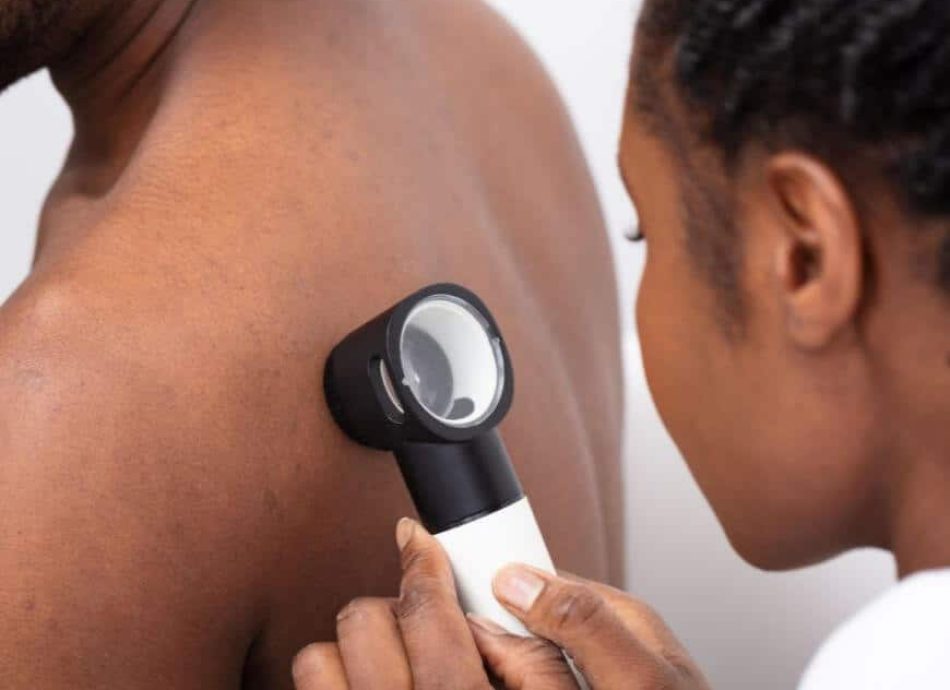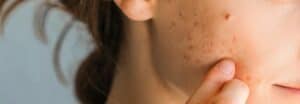Award winning dermatology service, with over 20 years of experience
Short waiting lists, on some occasions offering same week appointments
Safe environment, in Care Quality Commission approved facilities
Deep CHEMICAL PEEL IN SHREWSBURY
One of the most popular non-invasive cosmetic techniques is a chemical peel. These can really help give a boost to the skin of the face, hands and neck to rejuvenate and improve texture. They can also be very effective in treating acne and acne scarring.
Our specialist peels are designed to be quick and easy without the downtime associated with other peels and more invasive techniques. Suitable for all skin types, our peels will help your skin look smoother and brighter with an overall improvement in the texture and appearance of your skin.
Chemical peels work by applying a chemical solution to the surface of the skin to carefully remove its outer layers. The chemical solution causes the top layers of the skin to gently peel off, making way for new, healthy skin to shine through.
TYPES OF CHEMICAL PEELS
Chemical Peels can be classified as either superficial peels or medium depth peels depending on the chemical solution applied to the skin surface. They both remove the outer layers of the skin, but do so to variable depths. Our team of experienced medical skin experts, led by our Consultant Dermatologist, will advise on which type of chemical peel would benefit you most, as well as how many peels you would require, which is dependent upon the condition you are being treated for. No matter how deep the peel, your skin will re-grow and should heal fully. If you choose to have a deeper peel – maybe to get rid of wrinkles or acne scars – when the skin re-grows, it will not “remember” the blemishes that were there before. As the new skin develops, a new band of collagen in the dermis will grow along with a thicker epidermis. Hence, your skin will appear smoother and more perfect than before the treatment. The deeper the peel, the greater potential for improvement to the skin. However, the risks of side effects are greater with deeper peels.
FREQUENTLY ASKED QUESTIONS
HOW CAN I LOOK AFTER MY SKIN AFTER A CHEMICAL PEEL?
Following your chemical peel it is important to not pull or pick at your skin as it can interrupt the skins natural healing cycle and you are more likely to get an infection. Be gentle with your skin and treat it with care, using sensitive products on your skin. Continue to moisturise your skin as normal, ensuring you are using an SPF sun protection daily and avoiding direct sun light where possible. It is also important to drink lots of water and stay hydrated.
HOW LONG DOES IT TAKE TO HEAL AFTER A CHEMICAL PEEL?
Treated areas will take around seven to 14 days to heal following a medium depth chemical peel. Deeper chemical peels may take slightly longer.
REQUEST A CALL BACK
Please fill in this form and one of our team will give you a call back to arrange a consultation with one of our expert dermatologists.

HEAR FROM OUR PATIENTS
WHY HAVE A CHEMICAL PEEL AT ST. MICHAEL'S CLINIC?
Here at St. Michael’s Clinic, Shrewsbury’s leading private skin and laser treatment clinic, our experts are specialists in all aspects of dermatology, skin cancer, anti-ageing and beauty treatments. We are able to offer NHS patients a consultant led dermatology service from our sites in Shrewsbury and Much Wenlock.
St. Michael’s Clinic is regulated by the Care Quality Commission, ensuring the best level of treatment is provided to you in a safe environment. We are part of the Dermatology Partnership, a leading group of dermatology clinics, defined by clinical excellence and focusing on leading dermatological care.
latest INSIGHTS AND ADVICE

The Ultimate Manual to Skin Protection – Deciphering SPF
Using Sunscreen for Optimal Protection Understanding the SPF label on skincare items can feel confusing, especially for those unfamiliar with skincare. Fear not, we’re here to guide you. This comprehensive guide will delve into SPF’s role in skincare, how to select the right SPF and

Exploring Varicose Veins: Recognising, Managing and Preventing
Varicose veins portray themselves as twisted, enlarged veins that can disrupt the allure of your legs and incite discomfort. They are a common concern, specially as we get older. To manage and potentially alleviate the problems they present, understanding varicose veins is essential. In our

Revealing the Truth About Acne: A Comprehensive Review for Acne Awareness Month
June is globally celebrated as Acne Awareness Month, offering a platform to shed light on one of the world’s most universal skin disorders. The main purpose of this month is to emphasise the importance of knowledge, support and accessible remedies for individuals grappling with acne.




